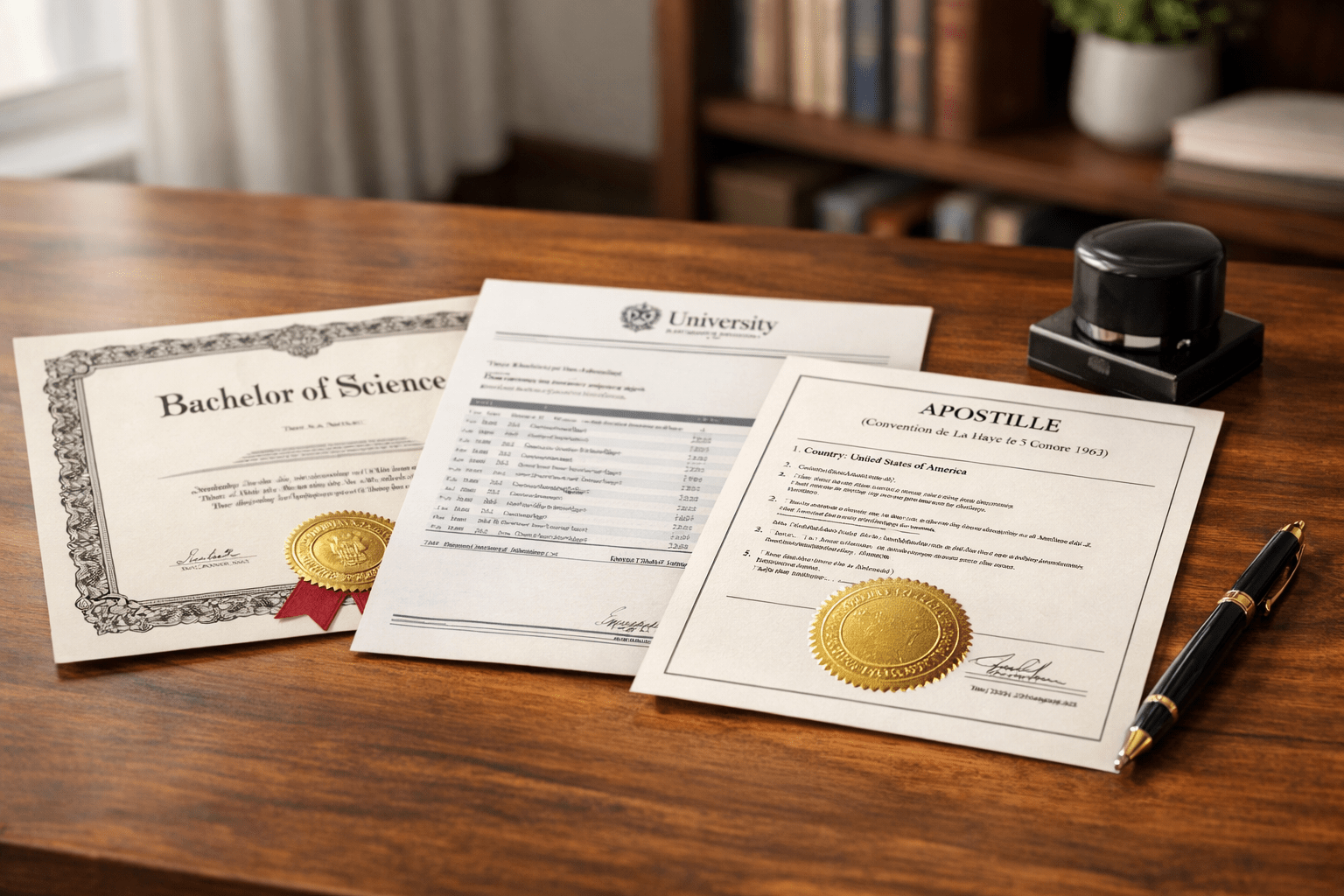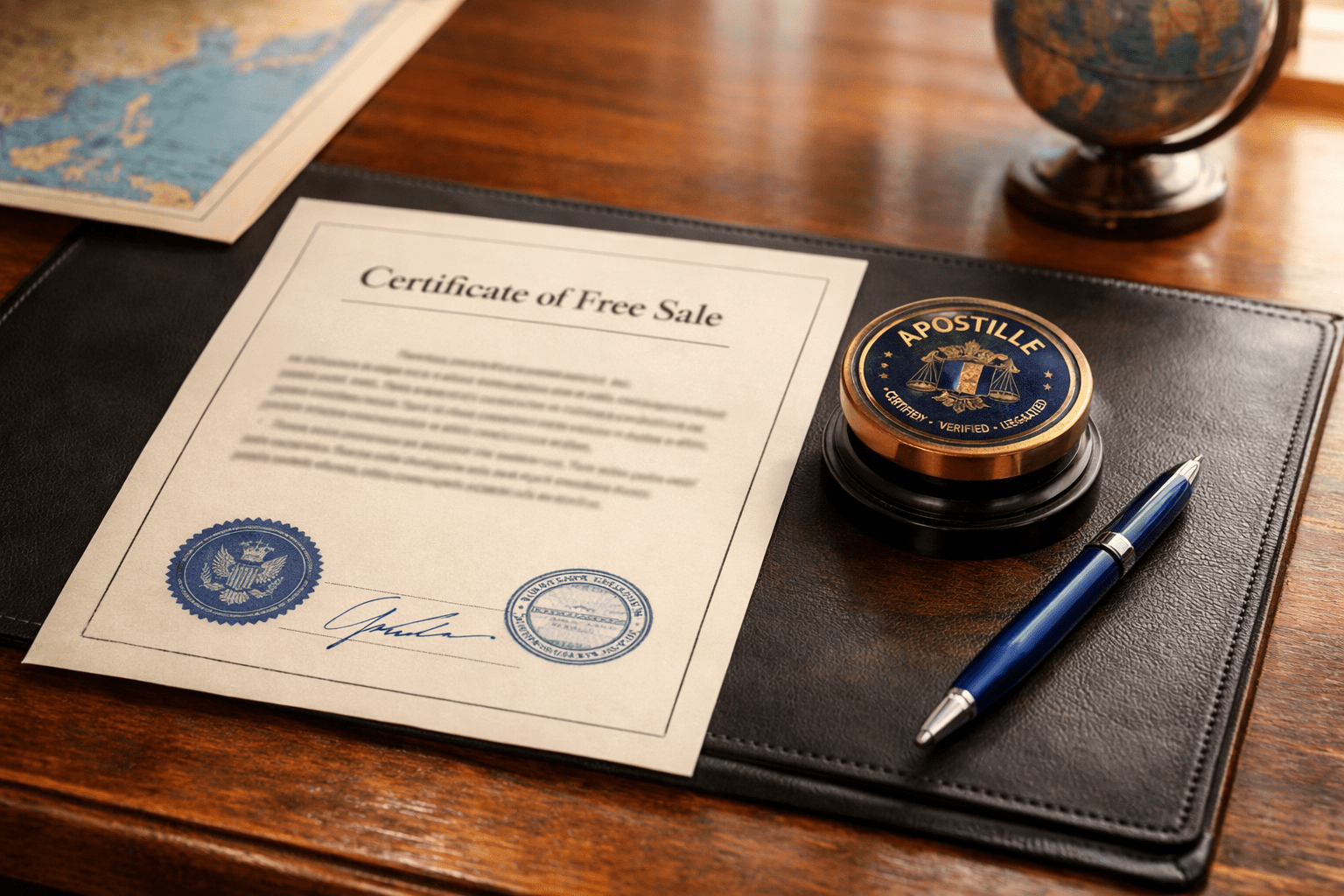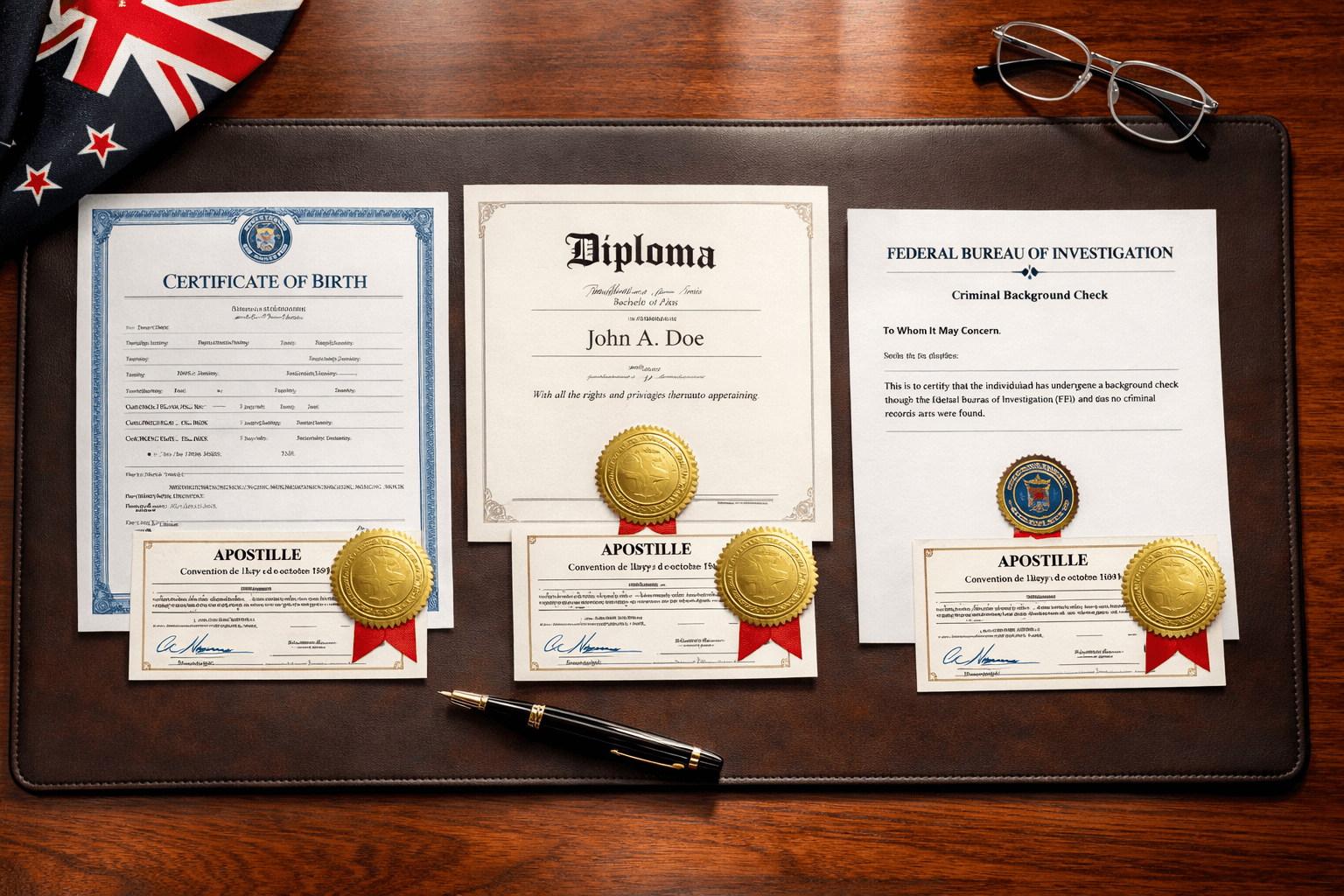
Notarization vs. Apostille: What’s the difference?
When dealing with official documentation, you may come across the terms notary and apostille, which might seem similar at first glance (but they’re not!). Each process has its purpose, and mixing them up can result in a series of unpleasant situations. To avoid complications when signing international contracts or legal forms, in today’s post, we’ll explore the difference between apostille and notary, covering what they mean and how they differ.
What is an Apostille?
An apostille authenticates a document, making it valid in a country that is a party to the 1961 Hague Convention. It’s like a seal of approval, allowing you to sidestep multiple certifications for personal and business records. Such a process is issued by designated authorities, including the Secretary of State, meaning you won’t need to have papers legalized by the diplomatic office of the destination country.
When Do You Need Apostille Services?
You’ll need an apostille for a number of scenarios. A common one is studying abroad. Suppose you’re relocating to France for an academic endeavor, and you’ll most likely need to send in transcripts and diplomas. If the institution requires proof of authenticity for such documents, apostille services are the solution. Similarly, this certification may be required in cases such as applying for dual citizenship, getting married abroad, conducting international business, or handling foreign real estate transactions.
Common Documents That Require an Apostille
As you’ve probably gathered, there are plenty of situations that require an apostille. Likewise, depending on the specific case, you may need authentication for a variety of documents to use overseas. Here are some common examples based on type:
- Personal or family documents: Birth/death certificates, marriage/divorce licenses, adoption records, and wills.
- Academic papers: Diplomas, degrees, certificates, and transcripts.
- Corporate documents: Contracts, agreements, powers of attorney, corporate invoices, and articles of incorporation
- Court/Legal papers: Affidavits, FBI records, criminal history reports, and court orders.
The Hague Convention and Apostilles
Countries that are members of the Hague Convention recognize an apostille as a valid certification without extra verification from a diplomatic office. The US, most of Europe, and many countries worldwide are signing parties to this treaty, making it easier to prepare documents for legal use. Therefore, if you’re sending documents to these places, an apostille is everything needed. Otherwise, additional authentication, such as embassy legalization, is required for destinations not on the member list.
What is a Notary?
A notary public refers to an accredited official who serves as a witness to verify the legitimacy of signatures and seals on a document. While their specific duties may vary from state to state, they are primarily responsible for the accuracy, integrity, and authenticity of paperwork and preventing fraud.
To do this, notaries typically confirm the identity of signers using a government-issued ID and make sure they are signing the documents willingly and without coercion. Once the signing is complete, the notary adds their signature and official seal, certifying the document’s validity in accordance with state law.

In recent years, these services have adapted to modern technology, particularly through online notarization. Now, you can have documents verified remotely via video call by simply uploading records, verifying your ID, and signing in real-time with an official witness. Once finalized, you receive a digitally notarized paper.
When Do You Need Notarization Services?
Notarizing documents is a common requirement that contains legal weight or major transactions. This includes affidavits, agreements, wills, and real estate deeds. For example, if you’re buying a house, a notary’s signature and seal are required on the mortgage documents to finalize the purchase. Similarly, sworn statements made under oath must go through notarization to be considered valid. So, before submitting any important paperwork, it’s a good idea to confirm whether notary services are required.
Who Can Perform Notarization?
Only a commissioned notary public can perform notarization. These officials are appointed after completing state-required training, passing a qualification exam, and undergoing a background check. Once licensed, notaries may work independently or within various professional settings, such as law offices and financial institutions.
Common Documents That Require Notarization
Many legal documents require notarization as a trusted method of verification. Some of the most common include:
- Affidavits;
- Real estate deeds;
- Commercial contracts;
- Wills;
- Powers of attorney.
That said, almost any document can be notarized to enhance its legal legitimacy. For example, a notarized agreement validates the enclosed information with signatures and confirms the identities and consent of the signing parties.
Key Differences Between an Apostille and Notary Public
The battle between apostille vs. notary can still be confusing for many. And to clear things up, we prepared a detailed breakdown of their key differences. Let’s take a look at the next sections so you can make the right choice and speed up legal proceedings domestically or overseas.
Purpose and Legal Effect
When thinking about getting documents notarized and apostilled, it’s essential to determine their distinct roles. A notary verifies that content and signatures/seals are legit according to local laws, so notarized documents are applicable for use within the given jurisdiction. In contrast, if you’re sending the papers to a country that is a part of the Hague Convention of 1961, you likely need an apostille for international acceptance. Hence, ask yourself why you need authentication before locking in an option.
The Process of Obtaining Each
To have a document notarized, you simply need to visit a notary’s office or arrange an online session. In just a few minutes, the notary will verify your identity, witness your signature, and apply their seal — all for a small fee. In comparison, getting a document apostilled involves submitting papers to an authorized office, such as the Secretary of State, and waiting for several days. In some countries, documents even have to be notarized before sending in for an apostille, adding another step to the process.
Fees
Notary fees are generally affordable, but the exact cost depends on state regulations. According to the National Notary Association, states set a maximum fee that notaries can charge, which typically ranges from as little as $2 to as much as $30 per notarization. Some notaries may even offer their services for free, while others charge extra for mobile or urgent services. On the other hand, the U.S. Department of State charges a flat rate of $20 per apostille, but state-level fees can vary.
Get It Done
This informative guide has come to an end, and we hope we’ve answered all questions. If you’re still unsure about which option is right for you, don’t hesitate to reach out to our team of experts. We’re here to guide you through the entire process and provide professional advice according to your request. With our expertise, you can be confident that the documents will be processed on time, without extra costs or headaches.





